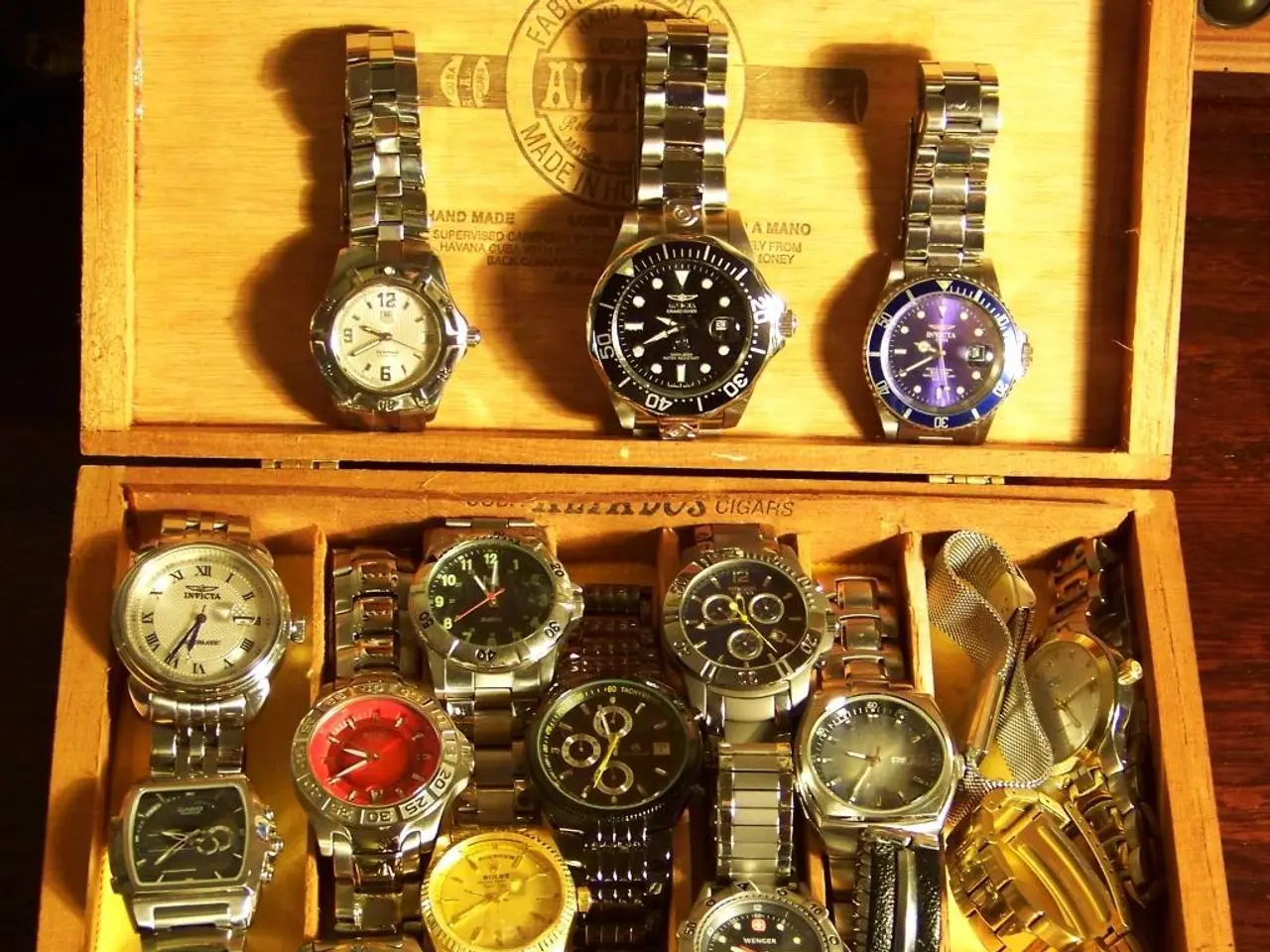Tariff Burden Depicted by Watch Brand: Unveiling the tariff-induced expenses linked to Trump's policies
In a move that could affect the affordability of Swiss watches in the United States, Christopher Ward has passed on the full additional cost of the Trump administration's 39% tariff on Swiss imports to American customers. This decision has resulted in a significant increase in the retail price of Christopher Ward watches in the U.S. market.
For instance, a $4,000 Christopher Ward watch now faces around a 44% customs duty, equating to approximately a $2,161 tariff fee before shipping, insurance, or sales tax. This hike effectively raises the watch's price for American buyers by over a third of its value.
The increased cost is entirely borne by consumers and not by Christopher Ward. The brand, known for its affordable prices compared to other brands, specializes in colorful tool watches, integrated-bracelet sport watches, and the C1 Bel Canto.
The new tariffs have immediate consequences for customers in the U.S., who are now subject to import duties reflecting the new tariff level. The tariff burden is a direct consequence of the Trump administration's trade policies targeting Swiss products.
Unlike other brands, Christopher Ward has been the most direct in showing how much the tariffs are increasing the cost of their watches. The new tariffs apply to all charges on Christopher Ward's site unless tariff rules change. The brand explains all charges clearly at checkout for transparency.
It's worth noting that the site Christopher Ward operates on is protected by reCAPTCHA, and the Google Privacy Policy and Terms of Service apply to it. Christopher Ward is based in Britain but manufactures its watches in Switzerland.
The tariffs have also affected other watch brands, with Rolex, Omega, and Cartier raising their prices by 3% to 10% due to the tariffs. As a popular brand in the boutique watchmaking scene, Christopher Ward's largest market is the U.S.
In summary, American customers buying Christopher Ward watches now pay substantially more, with tariffs adding roughly 40% or more to the base price, making Swiss watches less affordable in the U.S. market under the current tariff regime.
Read also:
- A Business Model Explained: Its Purpose and Benefits for Your Venture
- Deep-rooted reinforcement of Walkerhughes' acquisitions through strategic appointment of Alison Heitzman
- Unchecked Management of HP Dams Leads to Environmental Disaster: RTI Reveals
- Impact of Trump's Enforced Russia Sanctions Could Compel Putin's Decision-Making




